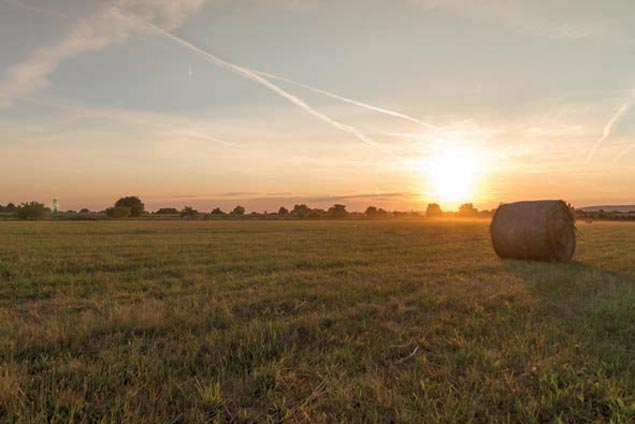
The week in which the Government has triggered Article 50 is a good time to take stock of what those who represent landowners, farmers and growers are proposing for the agriculture sector following Brexit.
The Government has so far committed to maintaining payments under the Common Agricultural Policy (CAP), direct payments, agri-environment scheme and rural development funding to the end of 2020. That is the point at which the current CAP settlement would end for UK farmers in any event.
Further, all legislation relating to CAP will be transferred under the Great Repeal Bill into UK law, enabling the Government (if it chooses) to continue the current funding regime after 2020.
Though the politics of continued funding may be unattractive, the economics are more positive.
The UK contributes around £6billion annually towards CAP and associated payments, but UK Farming currently receives just £3.2billion in return - so maintaining current support levels would cost relatively little.
The NFU is calling for a new “Dynamic Agricultural Policy” or DAP to replace the CAP funding regime.
It identifies three pillars to its DAP: Productivity, Environment and Volatility. It contends that, if the Government provides for a quick and disruptive transition from the CAP to a DAP, its DAP will be less than dynamic; it will need to accommodate significant market volatility; and it will see little benefit in terms of productivity and for the environment. But, if there is a gradual transition with positive outcomes in terms of trade, labour and regulation, the new DAP will see low volatility, strong productivity and environmental benefits.
The Tenant Farmers Association (TFA) is similarly pushing for a long and smooth transitional period. In particular, its view is that the Government needs “to broker some form of transitional arrangements on trade with the EU which provides reciprocal access to each other’s markets while we negotiate a bespoke trade deal over time”.
It also urges the Government to develop a long-term and holistic food, farming and environmental policy, covering everything from management of agricultural land, production standards and operation of markets, to taxation, tenancy law, regulation, research and development, and “allowing dignified routes for retirement for older farmers”.
As a whole that appears admirably ambitious, but it may well extend beyond the Government’s capacity and appetite for policy-making when grappling with the entirety of Brexit and its aftermath. It is also overtly protectionist, seeking food procurement policies to favour British-produced food.
The Country Land and Business Association (CLA) likewise sees the need for a joined-up food, farming and environmental policy. It has identified six key priorities: a productive, competitive farming and forestry sector; food and security; enhancing the environment; a dedicated UK budget; value for money; and clear and proportionate regulation.
The CLA looks more willing than the NFU or TFA to embrace the effects of increased market forces and pressures in the rural sector. For example, it is starting to champion the idea of the land management contract (i.e. a private law agreement) between the state and the individual landowner, as a more flexible model for payment of public money for a wider range of public goods.
That idea however still faces a big political and PR hurdle. It may be obvious to those of us involved in land management that keeping the UK countryside as the public is used to seeing it and enjoying it takes time and costs money. It is not a politically popular argument, nor one which yet has public traction, that landowners ought to be paid from the public purse to manage their own land for the public good. Once, however, you consider the extent of such public goods, is not a difficult argument to make. Are biodiversity, food security, water quality, air quality, soil quality, flood protection, animal welfare, increased public access to land and water, and landscape preservation, not worth public investment?
At the moment, this is principally a policy debate. From a legal perspective, Farm Business Tenancies and other contracts need to be future-proofed, though there is a limit to the clairvoyance of even the best-informed lawyers against a background of such uncertainty.
Once the Government’s policy position becomes clearer, it should become easier to take commercial and legal decisions which directly anticipate the future of UK agriculture after Brexit.
James Pavey, Partner
Published: 3 April 2017
A moment of clarity
April 2017
For general enquiries
0808 291 3524
Or we can call you back at a time of your choice
Our opening hours are Monday to Friday 8am to 6pm (excluding Public Holidays).
